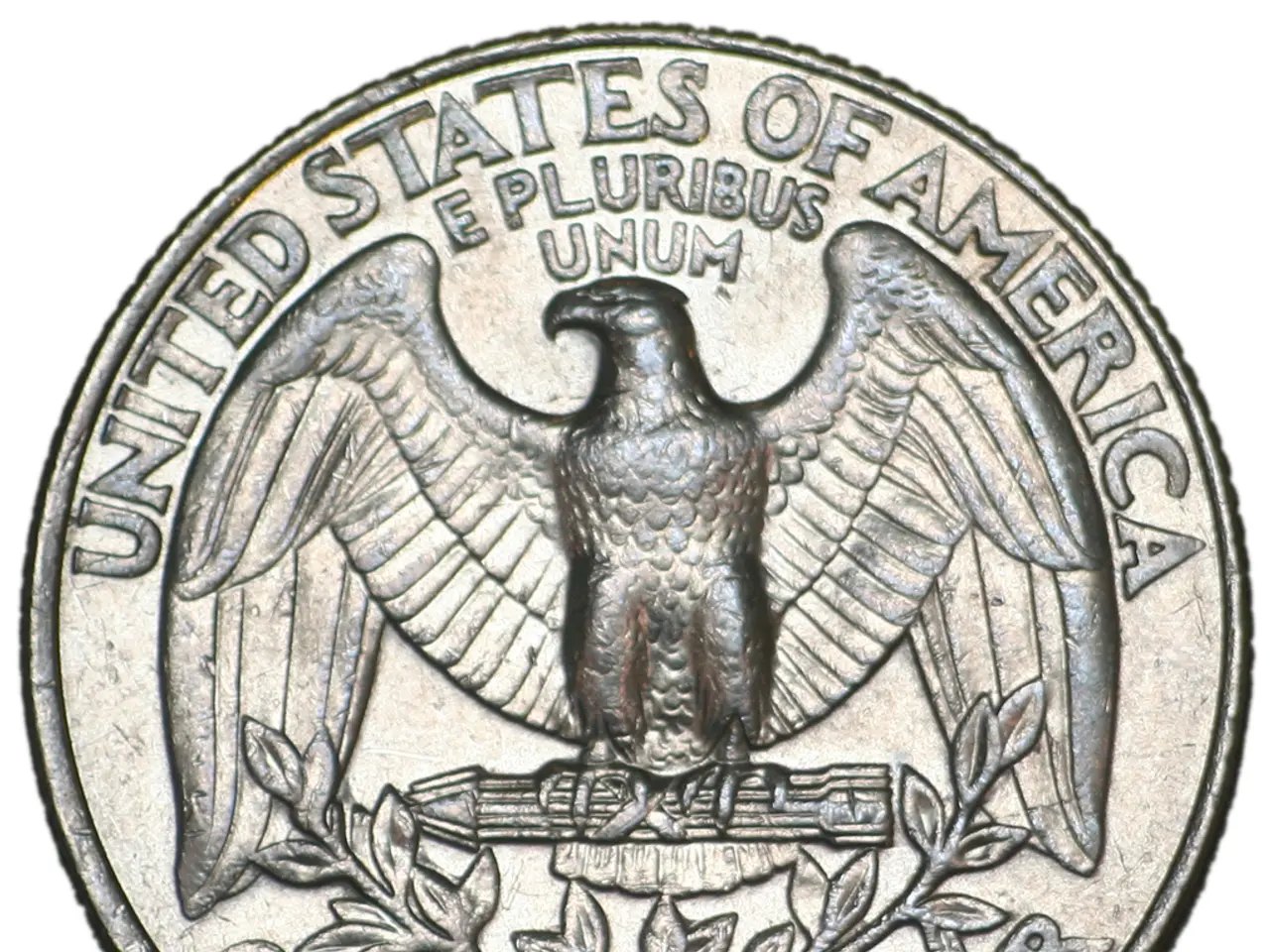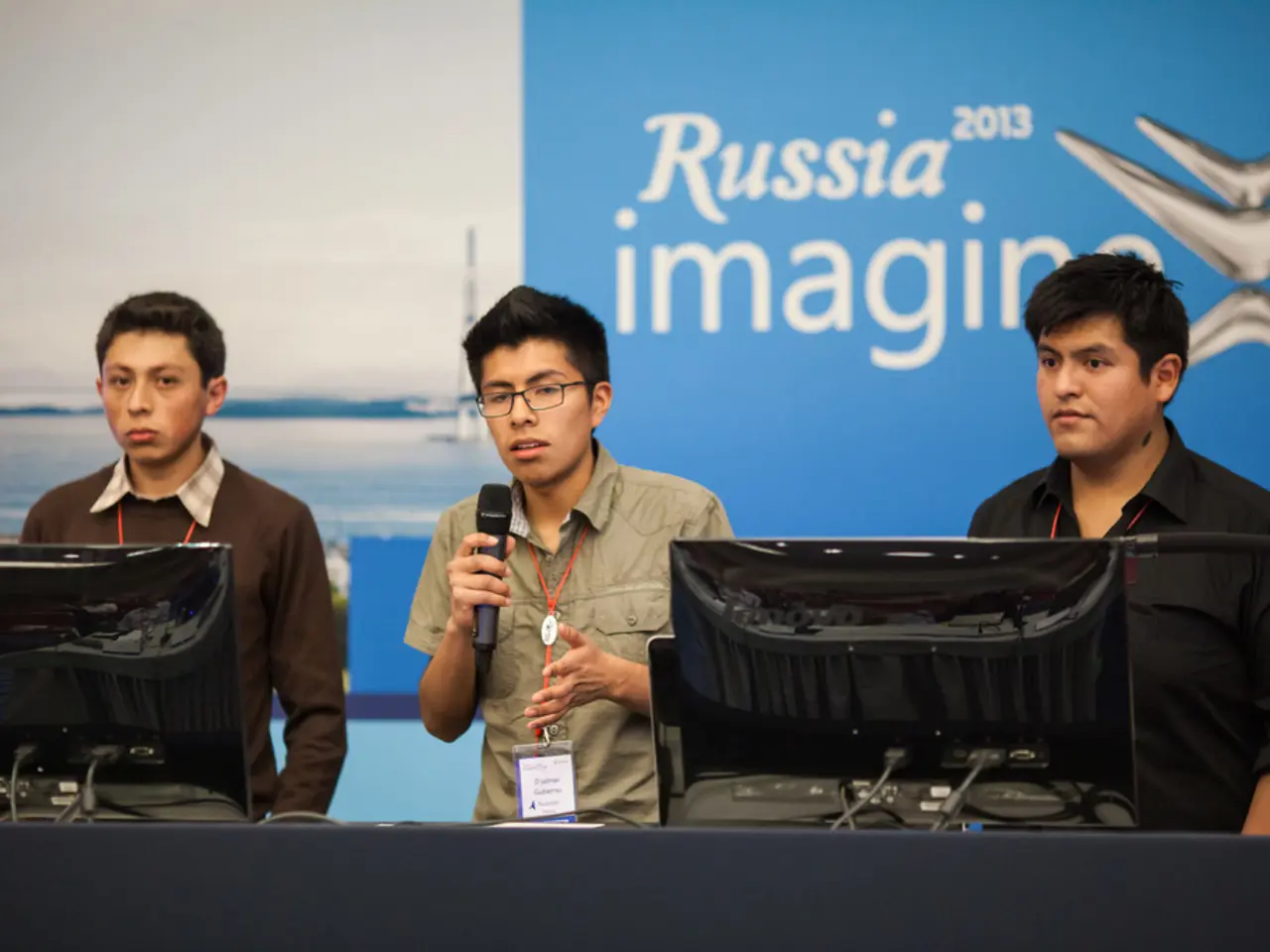Securities and Exchange Commission (SEC) grants ETF status to Grayscale's GDLC Fund, paving the way for increased institutional investment in digital currencies.
In a significant shift for the digital asset industry, the United States has seen a surge in crypto-related Exchange-Traded Funds (ETFs) over the past few months. This development comes as a result of clearer guidelines provided by the Securities and Exchange Commission (SEC) under new leadership.
The SEC's more accommodating stance has opened the floodgates for a wider variety of crypto ETFs, including those tied to coins like Solana, Ripple's XRP, and novel assets such as crypto "memecoins."
One of the most notable developments is the approval of multiple Bitcoin spot ETFs, which collectively command over $140 billion in assets. These ETFs serve as the primary entry point for crypto exposure among traditional investors.
In July 2025, the REX-Osprey Solana Staking ETF was launched, marking the first U.S. staking ETF. This innovative product provides exposure to Solana and also accrues staking rewards, representing a more rigorous regulatory structure and a significant milestone in blending staking with ETFs.
Promising filings have also been made, such as Canary Capital's Canary Staked INJ ETF, which would track Injective blockchain's native asset and accrue staking rewards. This filing is among the first of its kind for alternative crypto assets staking ETFs in the U.S.
Multiple asset managers have also submitted applications for Ethereum ETFs that include staking and in-kind redemptions features. These innovations have not yet been seen in approved ETFs but could come to market after pending SEC decisions, likely by late 2025.
Firms like Bitwise Asset Management now offer a wide range of crypto exposure products, including over 25 products across ETFs and other fund structures targeting more than 20 digital assets.
One of the most high-profile conversions is Grayscale's Digital Large Cap Fund (GDLC), which officially converted into an ETF on July 1. As of June 30, the NAV per share of GDLC was $48.83, while the market price was $47.95. GDLC holds $774.8 million in assets under management.
Grayscale has also removed private placement access and now directs investors to the ETF. The GDLC ETF now trades on NYSE Arca and includes Bitcoin, Ethereum, XRP, Solana, and Cardano, with Bitcoin accounting for 80.8% of the portfolio, followed by Ethereum (11.07%), XRP (4.63%), Solana (2.75%), and Cardano (0.75%).
The SEC's shifting stance under new leadership has materially expanded the range of crypto-related ETFs expected to enter the market soon, offering exciting opportunities for both investors and the digital asset industry as a whole.
The SEC's new approach towards crypto regulations has opened opportunities for a diverse array of crypto-based ETFs, including those tied to Solana, Ripple's XRP, and even "memecoins." Alongside these, innovations like staking ETFs and Ethereum ETFs with in-kind redemptions are being considered, potentially introducing blockchain-based assets into the mainstream sports and weather discussions.







